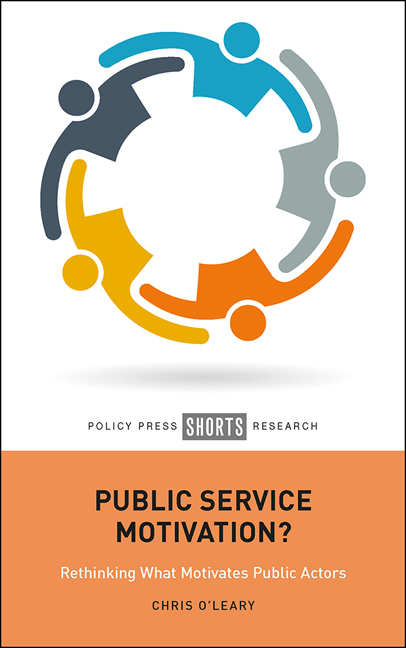Summary
Critique of public service motivation theory
PSMT is the dominant, if not hegemonic, explanation of the motives and actions of public employees in public administration scholarship. For 30 years, the proposition that public servants answer ‘the call to public service’, which is seen to be a higher order, other regarding motivation, has reasserted itself in the public administration and public management literature. A wide, impressive and highly impactful empirical literature has demonstrated that public servants are public service-motivated, and has considered the antecedents and consequences of this.
But there are serious issues with this proposition. It is still not clear what public service motivation is, what it is not and how it is different from other concepts of prosocial motives and behaviours. Despite assertions that public service motivation is found in all humans regardless of setting, research on this motivation is still overwhelmingly located in public administration scholarship, and overwhelmingly focused on public employees. Indeed, because of this, this book has focused on public employees and on whether and how PSMT explains their motives and behaviours.
Despite its clear location in furthering the public interest, PSMT fails to explain what the public interest is, how public employees understand the public interest and how they know whether they are in fact furthering it. The public interest is, of course, an abstract, distal and contested concept, which eluded conceptual clarity long before PSMT existed. It is an ideal; and a subjectively conceived and largely contested ideal at that. But given the implicit assertion of the PSMT literature that we should simply trust that public servants are furthering the public interest, there really ought to be a better explanation of how this normative motive directs the behaviour of public servants.
This leads to the second significant gap. The consequences of public service motivation – or indeed any other form of motive, preference, or goal – is behaviour. The link between motive and behaviour is tempered by the incentives and constraints we face in any given social situation. These include the public interest norm, the institutional design features of public organisations – their publicness, their form and function, their closeness to specific beneficiaries – and their organisational mission and values. And the behaviour of public servants has significant implications for citizens, businesses, communities, taxpayers and the like. For public servants make decisions – individual and collective – that have real-world consequences.
- Type
- Chapter
- Information
- Public Service Motivation?Rethinking What Motivates Public Actors, pp. 137 - 142Publisher: Bristol University PressPrint publication year: 2022



